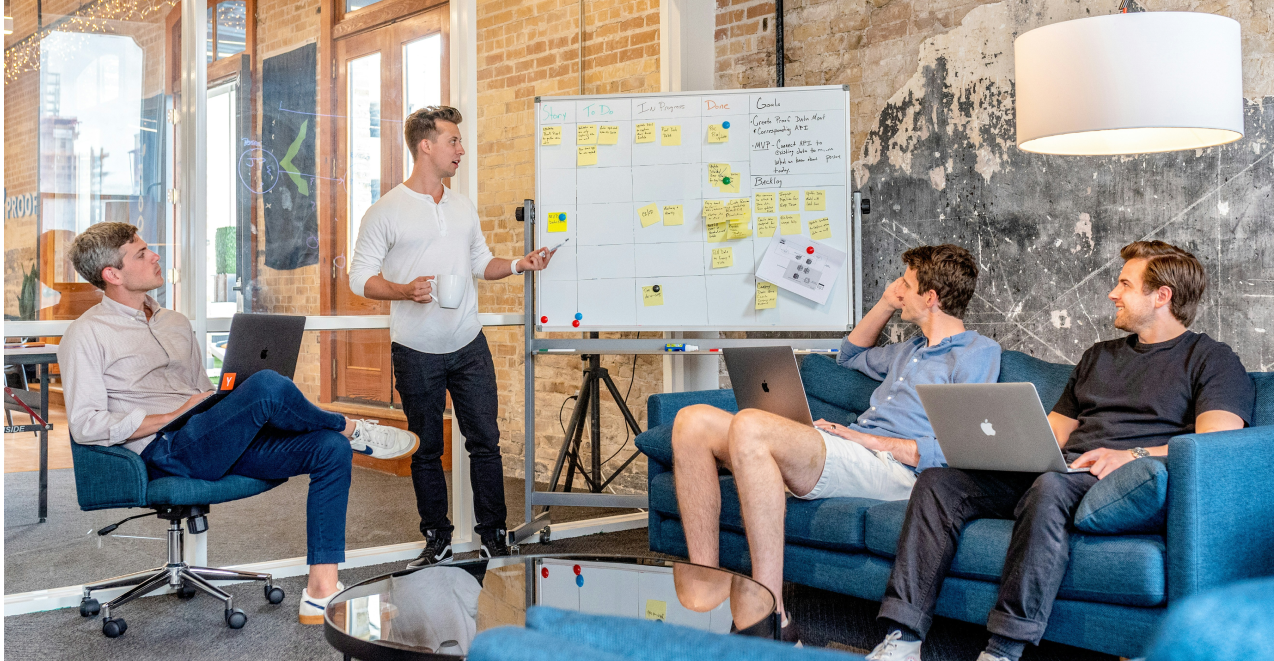AI's Transformative Potential in Talent Acquisition
When we hear "artificial intelligence" and "HR" mentioned together, our minds may immediately jump to a dystopian vision of robots making hiring decisions. But the reality is that AI is already enhancing many facets of human resources in powerful ways - from intelligent coaching and employee engagement, drafting job descriptions, to streamlining processes like payroll and benefits administration.
Imagine an AI assistant that provides personalized guidance to managers on leading their teams more inclusively and motivating each individual's unique strengths. Or AI-driven analytics that accurately forecast talent needs and identify retention risks before your star performer exits.
The possibilities of deploying AI's computational might, pattern recognition and predictive capabilities are endless for optimizing the entire employee experience and lifecycle.
One area where AI is already revolutionizing how we operate is recruiting and talent acquisition. By augmenting human expertise with intelligent automation, AI is fundamentally transforming how we identify, attract, assess and hire our future workforces.
However, as this disruptive technology makes inroads into hiring processes, several myths and misconceptions have emerged about AI's role. From fears of AI making human recruiters obsolete, to concerns about perpetuating bias or creating impersonal candidate experiences, there's understandable uncertainty about what an AI-empowered future really looks like.
Today, let's separate fact from fiction by busting some of the most common myths surrounding AI in recruitment. By arming ourselves with clarity on AI's true capabilities and limitations, we can move boldly into strategically applying these powerful tools to enhance our hiring processes.
Myth #1: AI will replace human recruiters.
The idea of AI making human recruiters obsolete is one of the most common fears. But the truth at least as it holds today is that AI can do certain tasks much better/faster than humans, but not the entire jobs. So, AI can automate monotonous tasks like resume screening and initial assessments, it can't replicate the entire breadth of human skills that top recruiters bring to the table.
Especially the skills that bring in qualities like emotional intelligence to build genuine relationships with candidates. The ability to evaluate soft skills and intangibles like culture fit through in-person interactions. The strategic mindset to make nuanced hiring decisions aligned with an organization's values and needs.
AI can't do any of that...at least not yet. What it can do is handle those repetitive, manual processes that currently tie up so much of a recruiter's time. By taking automation to the next level, AI frees you up to truly focus on the uniquely human aspects of recruiting top talent.
Myth #2: AI perpetuates bias in hiring.
This is a legitimate concern - that AI algorithms will just perpetuate and codify the same biases that already exist in traditional hiring practices because the data it was trained on has inherent bias. But here's the pivot: AI also gives us powerful new capabilities to reduce bias and promote diversity like never before.
Imagine an AI system meticulously analyzing your entire hiring funnel - from initial sourcing to final interviews - to pinpoint exactly where bias is creeping in at every stage, whether in how roles are described, candidates are evaluated, or opportunities are presented. With that level of process illumination, you can make constant adjustments to criteria, methods and messaging to actively mitigate bias.
Or think about an AI that anonymizes candidate information like names and photos during resume reviews to focus evaluations solely on skills, experiences and qualifications. By removing opportunities for unconscious bias to influence decisions, AI could fundamentally improve diversity hiring outcomes.
So yes, bias is a real concern with any system designed by humans. But AI arguably gives us a great shot yet at identifying and eliminating it.
Myth #3: AI makes the hiring process less transparent.
You'd think automating parts of hiring would create more "black boxes" and leave candidates in the dark, right? But the opposite is actually true - when implemented thoughtfully, AI enhances transparency in major ways.
Think about it: We've all been there as candidates, applying into what feels like a void, without any clarity on status or next steps. AI-powered chatbots and communications flows can keep people updated every step of the way. No more radio silence!
Even better, AI algorithms can provide unprecedented transparency by matching people to personalized job opportunity recommendations tailored to their unique skills and experiences. Instead of hoping your resume gets picked out of a stack, you get visibility into the roles you're a perfect fit for.
It's a future of open communication, visibility into process, and tailored guidance throughout the hiring journey. Now that's the kind of transparency we all want as candidates.
Myth #4: AI makes recruiting impersonal and robotic.
I get why people think automating parts of the hiring process will strip away the personal human touch that's so essential. Recruitment is inherently a human experience - how could injecting AI not make it feel like more cold calculation?
Here's the counterpoint: AI actually enables recruiters to deliver more personalized, high-touch candidate experiences at an unprecedented scale.
By intelligently automating away administrative drudgery like scheduling and updates, AI gives recruiters extraordinary flexibility to focus on the human elements. You can customize your communications, tap into each candidate's motivations and preferences, and truly build real connections and rapport.
And with intelligent automation handling high-volume tasks with consistency, you create seamless handoffs and harmonious experiences as candidates move through each hiring stage.
The result? AI powers tailored outreach, faster personal responses, and an overall higher-touch journey for candidates than ever possible before. It's technology enhancing the human experience, not detracting from it.
The Collaborative Future of AI-Driven Recruiting
As we bust these myths wide open, the truth becomes clear: AI is not some existential threat seeking to make human recruiters obsolete. Nor is it a black box creating more problems than solutions.
AI is a technology, and when thoughtfully designed and implemented, AI's transformative potential in hiring is to elevate and augment our capabilities as recruiters in ways that have never been possible.
By strategically applying AI to automate high-volume tasks, make processes smarter and more data-driven, reduce bias, and create stellar candidate experiences at scale, we can fundamentally transform how we attract, assess, and onboard top talent in today's hyper-competitive market.
The future isn't human vs. machine - it's human AND machine, working in seamless partnership to optimize every aspect of the hiring lifecycle.
It's about augmenting and amplifying human impact, not substituting it. Just like technology has enhanced virtually every other domain of human experience, AI simply levels us up as recruiters to operate with greater capability than ever before.
It's time to embrace the human + AI partnership and ride the wave of enhanced productivity, performance and candidate experiences still to come.
Written By - Ritesh Chopra




